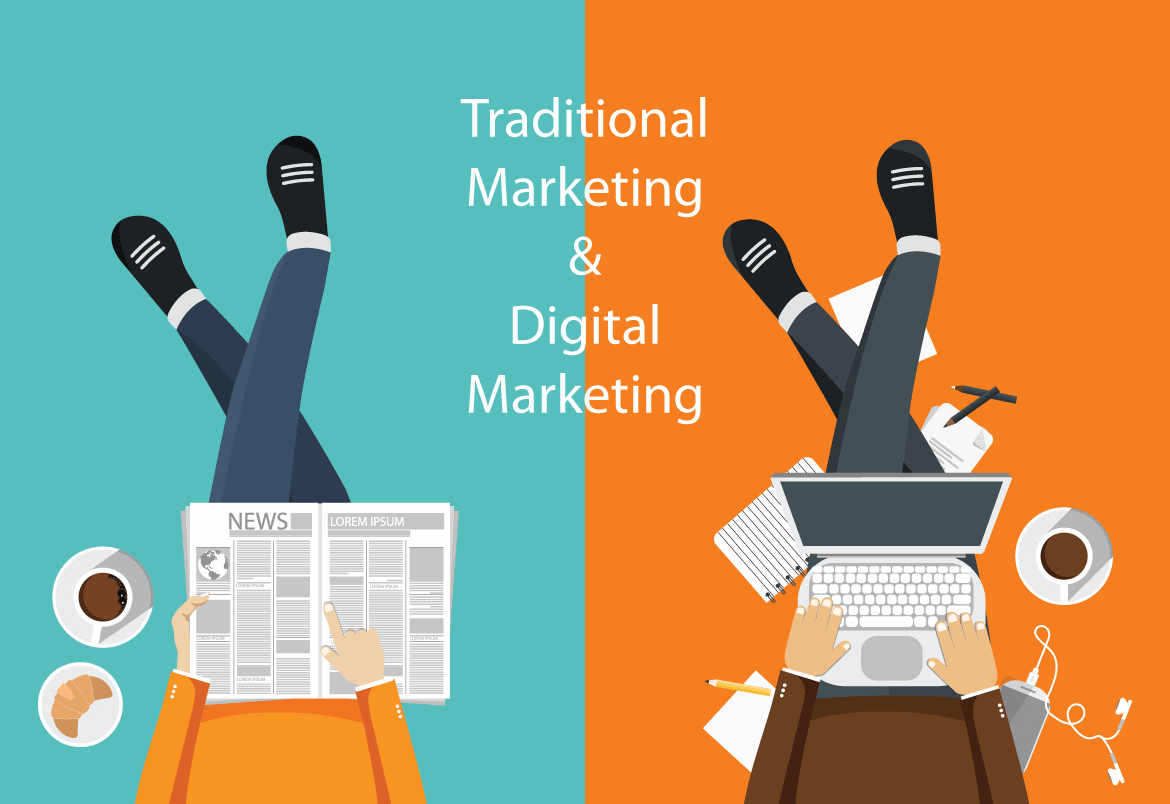Sixty percent of real estate agents actively search for leads daily, underscoring the competitive and challenging nature of the industry. With over 3 million active real estate licenses in the United States, it becomes evident that surviving in this field requires strong strategies.
To thrive in such a cutthroat niche, it is essential to implement effective real estate marketing strategies that drive lead generation and enable your business to establish a solid client base. These strategies are crucial for sustaining your business and navigating the demanding landscape.
It is important to recognize that successful lead generation begins with a well-executed marketing approach. Therefore, in this article, we will explore some practical real estate marketing strategies to assist you in generating more leads and fostering sustainable growth for your business.

Practical Real Estate Marketing Ideas for Implementation
In the realm of real estate, trust plays a paramount role as the ultimate selling factor. Building trust is facilitated through effective marketing strategies.
In addition to establishing trust, your marketing endeavors play a crucial role in generating qualified leads, which serve as the foundation for your real estate business to thrive amidst the fierce competition in the industry.
Outlined below are some of the top real estate marketing ideas that, when implemented effectively, hold the potential to elevate your business to unprecedented heights:
A Well-Optimized Website Functions as a Real Estate Sales Representative
Online presence is crucial in the real estate industry, as 44% of buyers begin their property search online. To ensure the success of your real estate marketing plan, it is essential to focus on optimizing your web presence specifically for your target audience.
Having a website alone is insufficient, as studies show that 88% of users will not revisit a website if they have a negative experience. To address this, you need to enhance the user interface (UI) and user experience (UX) of your website to align with your business goals.
Improving your web UX entails optimizing various aspects of your website, including its structure, content, navigation, and loading speed. Design an intuitive website structure based on audience research to understand what prospects are seeking when they visit your site.
For instance, anticipate that visitors will likely be looking for real estate listings, so prominently place a search bar on the home page. Furthermore, ensure that your website’s content effectively communicates the value your services offer to potential clients in a clear and concise manner. Simplicity is key when it comes to navigation, so avoid complex or confusing structures that may deter visitors.
You can also read: Top 8 Benefits of Real Estate Tokenization
Optimizing your website’s loading speed is also crucial, as it directly impacts sales generation. Studies reveal that a website’s conversion rate can drop by up to 5% for each second of delay in loading time. Therefore, it is vital to prioritize fast loading speeds.
There are several methods to increase your website’s load speed. Opting for a performance-optimized hosting solution can significantly impact load times. Additionally, compress and optimize images to reduce their file size and minimize the impact on loading speed.
Removing unnecessary content, spaces, characters, and elements from your website further enhances load speed. Finally, don’t overlook search engine optimization (SEO) to improve your website’s visibility in search results. While focusing on UX addresses many ranking factors, working on on-page and off-page optimization increases your chances of higher rankings.
Enhance Your Property Listings
Effective property listings play a crucial role in ensuring the success of your real estate business. While people may not physically shop for homes online. They extensively search for them on the internet, making online property listings a significant factor in their decision-making process when choosing a real estate agent.
As a result, it is imperative that your prospects have access to optimized and comprehensive property listings on your website. To achieve this, make sure to include high-quality property images, video tours, price range information, amenities, and all relevant details that your prospects may be interested in.
By providing detailed and visually appealing property listings. You enhance the overall user experience and increase the likelihood of attracting potential buyers or renters. Such comprehensive listings help instil confidence in your prospects and establish you as a reliable and professional real estate agent.
Establishing Your Social Media Presence
Social media platforms are a powerhouse for generating high-quality leads for real estate agents, with an impressive 52% of leads coming from this source. It’s no wonder that a staggering 90% of realtors utilize Facebook as a means to promote their businesses.
These statistics demonstrate that social media is an essential arena to establish and flourish in the real estate industry. If you’re seeking the right platforms for real estate marketing, Facebook, Instagram, and LinkedIn are popular choices.
Facebook and Instagram allow you to directly connect with your target audience and promote your business explicitly. On the other hand, LinkedIn helps establish your credibility as a professional real estate agent in a more implicit manner.
Once you have established your presence on these social media platforms, it’s crucial to optimize your profiles. Fill in all the required fields with accurate and relevant information, enabling your target audience to easily find and engage with your business.
You can also read: Digital Assets & Estate Planning: What You Need To Know
Maintain an active presence on your social media accounts by posting as frequently as possible. Utilize Instagram Stories to engage with your audience more regularly, while sharing posts on your feed periodically. On Facebook, interact with your followers, reply to comments, and participate in real estate groups to stay active.
When creating content, aim to strike a balance and avoid being overly sales-oriented. Ideally, 80% of your content should be helpful, educational, and relevant to your audience’s interests. The remaining 20% can focus on promoting your services. To build credibility, consider sharing posts about your successful closed deals on your social media profiles
Lastly, leverage optimized hashtags, especially on Instagram. Study the hashtags used by top realtors and customize them to suit your specific locality, ensuring maximum visibility and reach for your content.
Allocate Resources to Social Advertising
Social media ads serve as another potent tool for generating high-quality leads in the real estate industry. Once you have established a strong presence on social media platforms, it’s worth considering investing in targeted ads.
Before running your social advertising campaigns, conduct thorough audience research. This will enable you to tailor your ads to reach your specific target audience effectively. Social media platforms provide robust ad targeting capabilities. But to make the most of them, it’s crucial to have a comprehensive understanding of your prospects.
Given that you are allocating resources towards these ads, it’s essential to ensure they yield the desired outcomes. To achieve this, create compelling advertisements that highlight the value your real estate services can bring to clients. Incorporating testimonials or leveraging client reviews in your ads can enhance their appeal and credibility.
Lastly, remember to include a clear call-to-action (CTA) button on your ads. This will guide social media users to take the desired action, such as visiting your website or contacting your business, thereby maximizing the effectiveness of your ad campaigns.
Create and Optimize Your Google Business Profile
The majority of searches for real estate agents are localized, with people often using search terms like “Real estate agents near me” or “real estate agents [city name].” Google provides a dedicated business listing to showcase local businesses. All the businesses featured in this listing have a Google Business Profile (GBP).
You can also read: Most Important Digital Marketing Strategies Everyone Should Know
If you haven’t already done so, it is highly recommended to create or claim your GBP listing. This listing serves as an excellent source for driving web traffic and increasing your business’s exposure.
An optimized GBP profile functions as a second home page for your business, showcasing important information such as reviews and ratings, contact details, addresses, and business hours. This comprehensive profile has the potential to generate high-quality leads for your real estate business.
To create your GBP profile, simply visit Google.com/business and follow the necessary steps to set it up.
Allocate Resources to Content Marketing Initiatives
According to recent statistics, 67% of marketers believe that content marketing is effective in generating leads, and an impressive 82% of marketers actively invest in this area.
Content marketing plays a crucial role in helping your real estate business generate demand and leads. By creating high-quality, valuable content. You can establish trust with your prospects and position yourself as a thought leader in the industry.
In today’s digital era, content marketing is not something any business can afford to overlook. As a real estate business, there are various content formats you can leverage to fuel your content marketing efforts, including real estate marketing videos.
Start by establishing a blog section on your website. Identify the challenges and problems your prospects face, and create content that addresses these issues while offering practical solutions. Additionally, create a YouTube channel and share helpful video content such as home tours, area tours, and educational videos.
In addition to videos, consider hosting webinars as part of your content marketing strategy. Studies show that 89% of businesses believe webinars outperform other digital channels in generating qualified sales leads. Therefore, investing in webinars can yield significant benefits for your real estate business. When choosing webinar topics, prioritize the interests and needs of your target audience rather than focusing solely on your own preferences.
Lastly, consider guest-writing articles for relevant real estate websites, local blogs, and newspapers. This approach helps build your authority and positions you as an industry expert, further enhancing your credibility and attracting potential clients.
By implementing a robust content marketing strategy that encompasses blogging, videos, webinars, and guest writing. You can effectively drive demand, establish trust, and position your real estate business for success.
Consider Email Marketing
Email marketing is an effective approach for reaching both new prospects and maintaining engagement with existing clients. However, before diving into email marketing, it’s crucial to build a solid email list.
Ideally, your email list should consist of individuals who have either been your clients in the past or have a high likelihood of becoming your clients in the future.
There are several strategies you can employ to build your email list, including:
- Using gated content: Offer valuable content such as e-books, guides, or exclusive resources, and require visitors to provide their email addresses to access the content.
- Implementing pop-ups on your website: Use strategically timed and targeted pop-ups to capture visitors’ email addresses, offering them the opportunity to subscribe to your newsletter or receive updates.
- Offering discounts or gifts: Incentivize visitors by offering special discounts, promotional codes, or gifts in exchange for their email addresses. This can be done through opt-in forms or dedicated landing pages.
- Utilizing website banners: Place a prominent and visually appealing banner on your website, specifically designed to attract clients and encourage them to join your email list. Take inspiration from successful realtors, such as the example shown by a top realtor in the Jersey City area.
Remember to comply with data protection regulations and provide transparency about how you will use the collected email addresses. Building an engaged and targeted email list will allow you to effectively communicate with your prospects, nurture relationships, and drive business growth.
You can also read: Social Media Marketing Tips for Small Business
Obtain Client Testimonials
Referrals from past clients play a significant role in the real estate industry, with 67% of buyers finding agents through these recommendations. To attract clients and maintain the momentum of your real estate business, reviews are absolutely critical.
However, obtaining positive reviews can be a challenging task. People tend to be more motivated to leave negative reviews than positive ones. Therefore, it requires effort on your part to gather reviews from your clients.
Consider reaching out to clients you have worked with via email, kindly requesting their feedback and review. Additionally, ask clients with whom you have successfully closed deals to share their experiences by leaving a review.
If you have clients with whom you have developed excellent relationships. You can take it a step further and request their participation in video testimonials. These video testimonials can be shared on your social media platforms and YouTube channels, enhancing your credibility and trustworthiness.
Reviews and testimonials serve as powerful trust signals in the real estate industry. Make obtaining reviews an integral part of your real estate marketing strategy, as they contribute significantly to attracting new clients and fostering continued success.
Conclusion
In today’s modern real estate landscape, real estate marketing, particularly online marketing, is essential for the survival and success of any real estate business, regardless of its size.
As you execute the marketing strategies mentioned earlier, it is crucial to recognize the significance of high-resolution visuals. Incorporate high-quality property images in your social media posts, website, and any other relevant platforms where you promote your business.
Additionally, it is important to stay informed about the ever-evolving marketing landscape. The field of real estate marketing undergoes rapid changes. So it is essential to stay updated and adapt your strategies accordingly by staying proactive and responsive to industry shifts. You can ensure the effectiveness and relevance of your marketing efforts in the long run.
Would you like to read more about effective real estate marketing strategies-related articles? If so, we invite you to take a look at our other tech topics before you leave!
![]()











